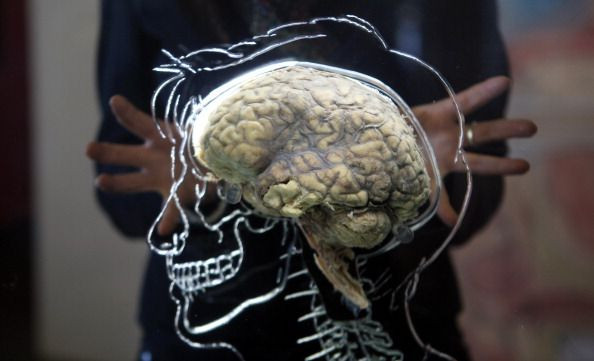Can Happy Music Resolve Creativity Crisis? Experts Say Yes

Are you facing a creativity crisis? Well, listening to happy music may help.
A study published Wednesday by the non-profit PLOS underlines that the effect of music on creative cognition has largely remained unexplored. Following a series of experiments, Simone M. Ritter of Radboud University and Sam Ferguson of the University of Technology in Sydney, Australia, found that different types of music had different effects on the brain. A total of 155 people took part in the study and the researchers also found that happy music gave a boost to divergent thinking.
According to the authors, this is the first such project to “experimentally test whether listening to specific types of music, as compared to a silence control condition, facilitates creative cognition.”
“Creativity is the driving force behind scientific, technological and cultural innovation, and it can be considered one of the key competencies for the 21st century,” the authors write in their paper. “However, we are in a creativity crisis, people, in general, are thinking less creatively than before.”
The participants were divided into five groups and they were made to listen to different types of music — varying on valence and arousal — while undergoing tests designed to evaluate convergent and divergent thinking. While divergent thinking involves producing multiple answers from available information, according to the authors, convergent thinking emphasizes on accuracy and logic.
“Creativity was higher for participants who listened to ‘happy music’ (i.e., classical music high on arousal and positive mood) while performing the divergent creativity task, than for participants who performed the task in silence. No effect of music was found for convergent creativity,” highlights the research paper.
Interestingly, a study published by the Oxford University Press in 2012 also linked creativity and music. Listening to music at lower volume could boost creativity, it said. “Results from five experiments demonstrate that a moderate (70 dB) versus low (50 dB) level of ambient noise enhances performance on creative tasks,” the authors noted. “A high level of noise (85 dB), on the other hand, hurts creativity.”
Music is also said to affect the productivity levels. In the research titled, “The sound of cooperation: Musical influences on cooperative behavior,” lead author Kevin Kniffin, a behavioral scientist, highlighted how employees could be more productive if they listened to happy music. The study that also highlighted that music helped in increasing cooperation among the teammates at workplaces was published last year in the Journal of Organizational Behavior.
“Lots of employers spend significant sums of time and money on off-site team building exercises to build cooperation among employees. Our research points to the office sound system as a channel that has been underappreciated as a way to inspire cooperation among coworkers,” Kniffin said in a press statement published by Cornell University.
When you are listening to your favorite song, it just doesn’t uplift your mood. Music, in general, affects blood pressure and heart rate too, according to an article published by the North Central University. Explaining how music affects the brain, Dr. Masha Godkin, a professor in the Department of Marriage and Family Sciences at NCU, was quoted as saying in the same article, “Music activates both the left and right brain at the same time, and the activation of both hemispheres can maximize learning and improve memory.”
© Copyright IBTimes 2024. All rights reserved.




















